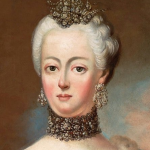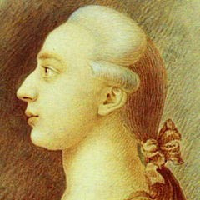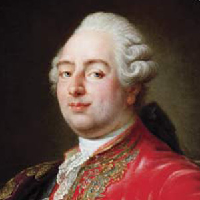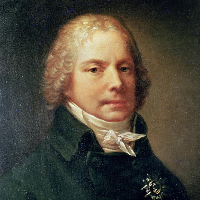Ji Xiaolan (纪晓岚) mbtiパーソナリティタイプ
個性
"Ji Xiaolan (纪晓岚)はどのような性格タイプですか? Ji Xiaolan (纪晓岚)は、ENTP in MBTI、7w6 - - in Enneagram、 in Big 5、 in socionics のパーソナリティタイプです。"
谁投的ESFP,看多了《铁齿铜牙纪晓岚》吗?此人明显一Ne-Si人,如蒲松龄,收集故事、博闻强识,创造性的发挥,且这辈子没有真的挑战过任何人,包括且尤其是和珅(历史上)。
バイオグラフィー
Ji Yun (Chinese: 紀昀; pinyin: Jǐ Yún; 1724–1805), also known as Ji Xiaolan (Chinese: 紀曉嵐; pinyin: Jǐ Xiǎolán) or Ji Chunfan (Chinese: 紀春帆; pinyin: Jǐ Chūnfān) was a Chinese philosopher, politician, and writer. He was an influential scholar of Qing dynasty China and many anecdotes have been recorded about him. Ji Yun left behind a book entitled Notes of the Thatched Abode of Close Observations (閱微草堂筆記)and another book named Wenda Gong Yiji (紀文達公遺集; Collected Works of Lord Wenda, i.e. Ji Xiaolan), which was edited by later generations. He was often mentioned with Yuan Mei as the "Nan Yuan Bei Ji" (Chinese: 南袁北紀; lit. 'Yuan of the south and Ji of the north').Background Ji Yun was born in Xian County of Zhili province (modern Hebei). When he was young, he was deemed intelligent. His father Ji Rongsu was a civil minister and archaeologist. Career In 1747, Ji Yun rose to intellectual prominence after winning the highest distinction in the provincial examinations. Several years later, in 1754, he attained the jinshi degree, whereupon he entered the Hanlin Academy. Ji Yun's career was not, however, smooth sailing. In 1768, he became an accessory in a bribery case after he tipped off a brother-in-law about the severity of charges pending against him, for which crime he was banished to Dihua in Ili (predecessor of Xinjiang Province).[4] On his return from Xinjiang, Ji was received by the Qianlong Emperor in 1771 when the ruler happened to be returning from Jehol to Beijing, and he was ordered to write a poem on the return of the Turgut Mongols from the banks of the Volga. Ji's rendition of the inspiring tale of the return of the exiled Mongols, later celebrated in English by poet Thomas de Quincey (1785–1859) in his epic Revolt of the Tartars, delighted the emperor, for whom he became an unofficial poet laureate. The job of compiling the Siku Quanshu was his dubious reward.One year later, Ji Yun was pardoned from his sentence, and, on his return journey in 1771, he wrote a travel account distilled into 160 poems titled Xinjiang zalu (新疆杂录; Assorted verses on Xinjiang). This remains one of the most useful sources in Chinese on life in Xinjiang Province in the late-eighteenth century. Personal life He was an avid tobacco smoker, which he famously smoked with his pipe. He was an enthusiastic food gourmet with a special liking for fatty pork and strong tea and disliked starchy staple foods like rice, potatoes, wheat and corn. He loved women and had many concubines throughout his life. It was said he consummated with five different women every day. He seldom rode sedan chairs and preferred to walk.[5] In the first year of the Jiaqing Emperor's reign, he was appointed as the secretary of defense. Despite his bad habits, Ji Yun died in his sleep in 1805, aged 81. During his later years, Ji Yun became one of the three great writers of strange tales in Qing dynasty China (the other two were Pu Songling and Yuan Mei). His tales included "true" weird tales, investigations of paranormal phenomena, as well as horror stories, parables, accounts of strange natural phenomena, and satirical portraits of prominent Neo-Confucian scholars and government officials. Achievement 1747- Ranked number one provincial graduate (鄉試解元) 1754- Ranked number one graduate of the palace examination (中進士) 1773- Chief editor for the Siku Quanshu, the largest collection of books in Chinese history 1796- Minister of war (兵部尚書) 1797- Minister of Personnel (吏部尚書) Between 1789 and 1798, Ji Yun published five collections of supernatural tales, and in 1800 the five volumes were produced under the collective title Yuewei Caotang Biji (閱微草堂筆記 or Jottings from the grass hut for examining minutiae). In addition, Ji Yun was also well known as magnum opus of Qing editorial achievement, Siku quanshu (The Complete Library in Four Branches), where he edited this massive work together with Lu Xixiong, in compliance with an imperial edict issued by the Qianlong Emperor. Poetry One poem by Ji Yun is shown below: "A Sail in the Glass" Countless welcoming good mountains along the river, My eyes are lit up as soon as I'm out of Hangzhou, Misty river banks with mixed sky and green, A sail in the glass.Mansion The mansion in which Ji Yun lived for the last thirty years of his life was originally the residence of General Yue Zhongqi (1686–1754), the twenth-first generational descendant of the renowned anti-Jurchen Jin, Song dynasty loyalist and general Yue Fei, who is one of the most renowned figures in Chinese history. General Yue fought alongside General Nian Gengyao in quelling Tibetan rebels in what is today Qinghai, and was highly honoured in Beijing. He never lived for very long in the capital, his base being in Sichuan and Gansu. However, he was rewarded for his service to the throne by the Kangxi Emperor and raised to the position of duke of the third class. Ji Yun lived in the mansion for thirty years and several features of the dwelling
















